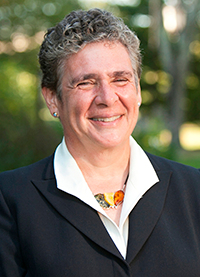This panel explores the impact of developing an adequate supply of affordable housing on communities, as well as the role that affordable housing can play in boosting the environmental, social, and economic sustainability of places. It also explores, through practical examples, how housing made affordable through public support is leading sustainability efforts in many communities as well as the challenges communities face in moving toward greater sustainability.
Featuring:
Moderator:
 Brian Robinson
Brian Robinson
Director, Strategic Capital Solutions
HAI Group
Brian Robinson is Director of Strategic Capital Solutions at HAI Group. In this capacity, he is responsible for leading the Company’s new initiative of developing and implementing financial products to support public housing agencies’ redevelopment efforts. Prior to joining at HAI Group in 2011, Brian worked for nearly ten years as a developer for-profit developers and a public housing agency. As a developer, Brian was directly in the closing of approximately $275 million in affordable housing transactions that were structured with numerous types of capital sources such as HOPE VI, FHA 221(d)(4) and 221(d)(3), Freddie Mac, Fannie Mae, Tax-Exempt and Taxable Bonds, LIHTC, to name a few.
Brian also has a background with financially-issuing entities, having worked in investment banking at Legg Mason in the Public Finance Group working with taxable and tax-exempt bonds for affordable housing, General Obligation, Private Activity Bonds, TIFs, and Transportation. He was directly involved in the closing of the bond transactions totaling approximately $375MM. He also worked at Connecticut Housing Finance Agency co-managing the state’s LIHTC program and serving as a senior underwriter to developers who were doing affordable transactions through the state of Connecticut’s housing finance agency.
Brian has a bachelor’s degree in business administration with a concentration in finance from Loyola University of Chicago, and Master of Urban and Regional Planning and Master of Social Work from the University of Michigan.
Panelist:
 Marc Draisen
Marc Draisen
Executive Director
Metropolitan Area Planning Council (MAPC)
Marc Draisen has served as the Executive Director at the Metropolitan Area Planning Council (MAPC) since 2002. As the regional planning agency for Metro Boston, MAPC’s mission is to promote smart growth and regional collaboration. The agency provides technical and professional services to improve physical, social, and economic health for the people who live and work in the region. MAPC’s work covers a wide range of areas related to smart growth and regional collaboration, including transportation, land use, water resources, clean energy, climate change, public safety, public health, housing, economic development, and collective procurement. The agency also plays a robust role in public policy, especially on the state level. Mr. Draisen represents MAPC on several boards, including the Board of Directors of the Massachusetts Smart Growth Alliance; Transportation for Massachusetts (T4MA); and the Boston Region Metropolitan Planning Organization (MPO), which programs federal transportation project and planning funds.
Prior to joining MAPC, Mr. Draisen served as President and CEO of the Massachusetts Association of Community Development Corporations (MACDC) and Executive Director of Citizens’ Housing & Planning Association (CHAPA). Mr. Draisen also served two terms as a state representative for Boston and Brookline, from 1991 to 1995. Mr. Draisen earned his Bachelor’s Degree from Brandeis University and his Master’s Degree in City Planning from the Massachusetts Institute of Technology.
Panelist:
 Elyse D. Cherry
Elyse D. Cherry
CEO, Boston Community Capital
President, Boston Community Venture Fund, Aura Mortgage Advisors, NSP Residential
Elyse Cherry is Chief Executive Officer of Boston Community Capital, a sustainable $1 billion national nonprofit organization fighting for social and economic justice. Under her leadership, Boston Community Capital has leveraged $6 billion of public and private investment in underserved communities nationwide. Elyse helped found Boston Community Capital in 1984 as a member of its original Board of Directors and has been integrally involved in its development and growth from a start-up organization to what is, today, a national model for community investment. She has authored opinion pieces for The New York Times, The Los Angeles Times and The Huffington Post, among others. Boston Globe Magazine has named Boston Community Capital to its “Top 100 Women-Led Businesses in Massachusetts” for three consecutive years with Elyse at the helm. In 2016 and 2015, The Financial Times named her one of the Top 100 OUTstanding LGBTQ Executives in the world and the Astraea Lesbian Foundation for Justice awarded her its Fueling the Frontlines award. In 2014, the White House named her a Solar Champion of Change; Fenway Health honored her with the Susan M. Love Award; Women’s eNews named her one of 21 Leaders for the 21st Century; and The Boston Business Journal named her to its Power 50 list of influential Bostonians. Elyse served as a member of Massachusetts Governor Deval Patrick’s nineteen-member statewide transition team and was appointed by the governor to the Massachusetts Governor’s Foreclosure Impacts Task Force and the Advisory Committee to the Massachusetts Office of Consumer Affairs and Business Regulation. She is a past Chair of the Massachusetts Cultural Council and chaired the board of Mass Equality during that organization’s historic fight for marriage equality in the Commonwealth. She has also served as Vice Chair of Opportunity Finance Network, on the Mission Driven Investment Committee of the Kellogg Foundation, and on the board of the Lesbian Political Action Committee. Elyse is a frequent panelist and speaker at national conferences, and in September 2016, gave a TEDx talk entitled “Come Out, Come Out Wherever You Are!” in Belfast, Northern Ireland. Elyse is a graduate of Wellesley College and the Northeastern University School of Law. She started her career as a VISTA Volunteer at the East Tennessee Community Design Center.
Panelist:
 Devin Quirk
Devin Quirk
Director of Operations
City of Boston Department of Neighborhood Development
As the Director of Operations for the Department of Neighborhood Development, Devin oversees all of day-to-day management activities of the department. Working with the talented team members at DND, Devin manages efforts to improve Boston’s neighborhoods through developing affordable and market-rate housing, advocating for low- and moderate-income Bostonians, reimagining the City’s surplus real estate portfolio, fostering community development, partnering to end homelessness, and assisting Bostonians to become and remain homeowners.
Prior to joining DND in 2013, Devin led the City of Boston’s analytics and performance management programs, where he was responsible for comprehensively measuring city performance and providing leaders with data driven strategies to improve city services.
Devin has also worked as a management consultant with Booz Allen Hamilton in Washington D.C. and served as an education policy consultant in New York City. He holds a Master’s Degree in Public Policy and Urban Planning from the Harvard Kennedy School, and a Bachelor’s in Psychology from Harvard University.
Panelist:
 Dr. Chris Herbert
Dr. Chris Herbert
Managing Director
Joint Center for Housing Studies at Harvard University
Christopher Herbert is Managing Director of the Joint Center. Dr. Herbert has extensive experience conducting research related to housing policy and urban development, both in the U.S. and abroad. A key focus of his research has been on the financial and demographic dimensions of homeownership, and the implications for homeownership policy of the recession, housing bust, and foreclosure crisis. Having previously worked at the Joint Center in the 1990s, Herbert rejoined the Center in 2010 from Abt Associates, to serve as the Director of Research. In this role, Dr. Herbert led the team responsible for producing the Center’s annual State of the Nation’s Housing and its biannual America’s Rental Housing reports, essential resources for both public and private decision makers in the housing industry.
Dr. Herbert was named managing director of the Joint Center in 2015, and oversees the Center’s diverse sponsored research programs, its local and national conferences and symposia, as well as its student fellowship programs, designed to help train and inspire the next generation of housing leaders. He is also a Lecturer at the Harvard Graduate School of Design in the Department of Urban Planning and Design.
Dr. Herbert is co-editor of Homeownership Built to Last: Balancing Access, Affordability, and Risk After the Housing Crisis (Brookings Institution Press, 2014), and a member of the Board of Directors of the Homeownership Preservation Foundation, the Federal Reserve Bank of Boston Community Development Research Advisory Council, and the Center for Responsible Lending Research Advisory Council. He holds a PhD and Masters in Public Policy from Harvard University, and a BA in History from Dartmouth College.


